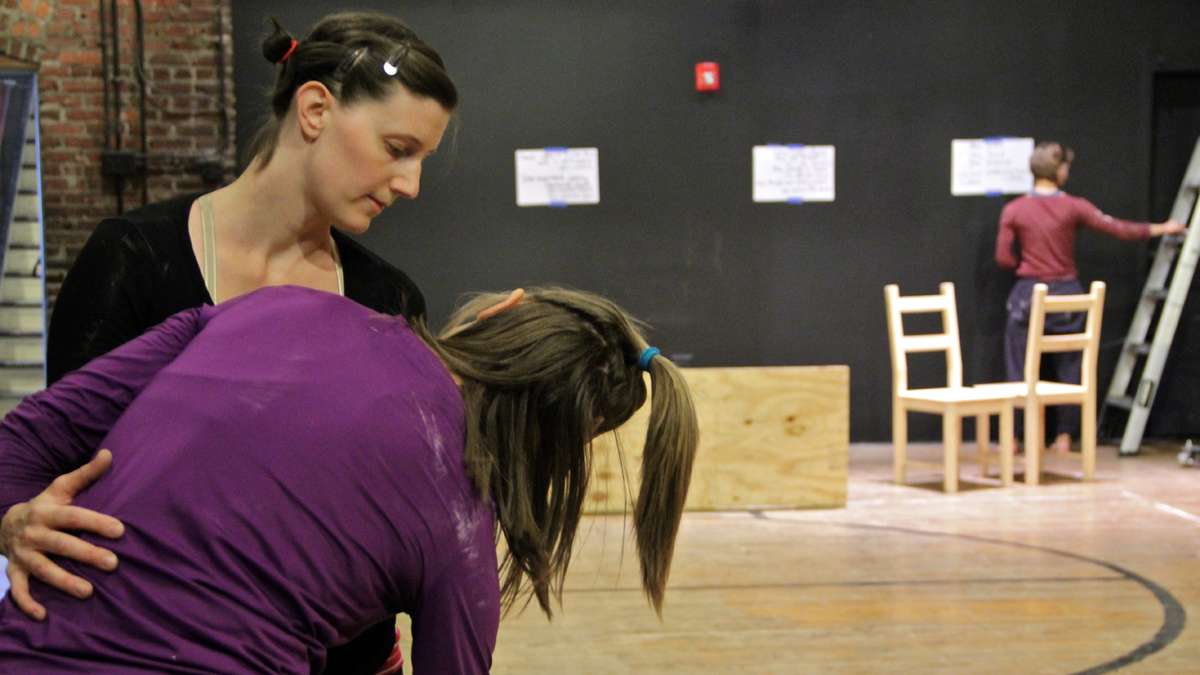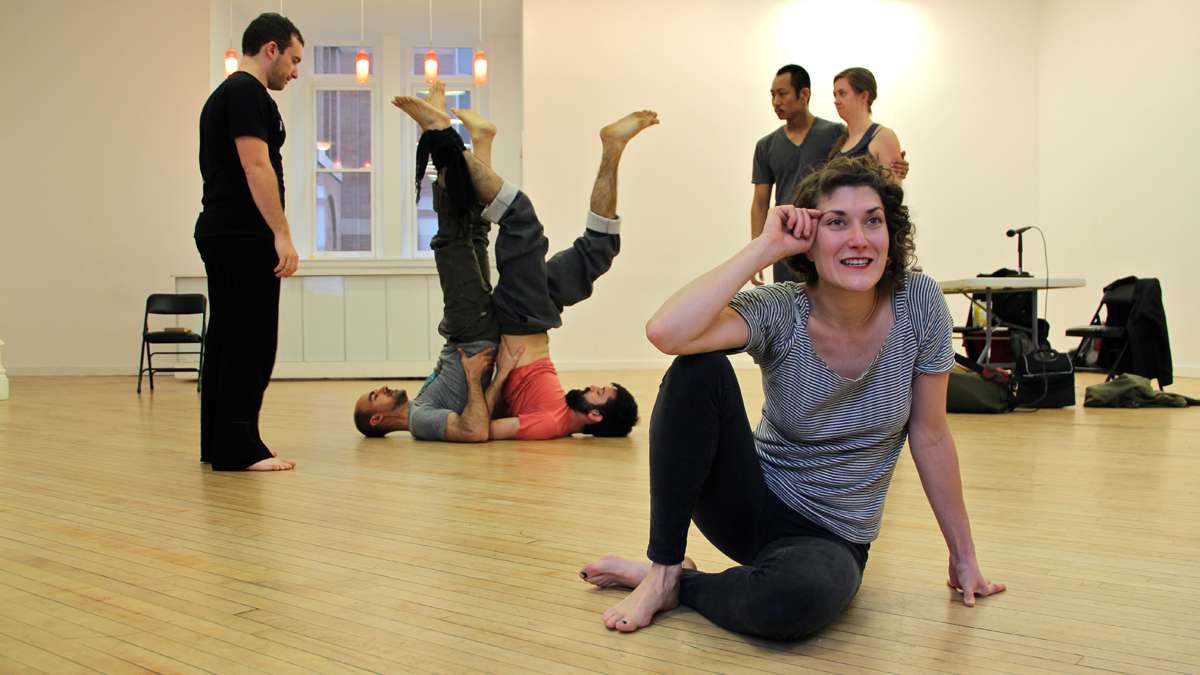RAW and sincere, but by design no plot in First Person performance
Listen-

-

-

-

-

Members of Team Sunshine Performance Corporation rehearse for their First Person Arts Festival contribution, The Sincerity Project. (Emma Lee/for NewsWorks)
“The way I watch theater, I’m excited and troubled by how things feel true, and things feel false,” said Alex Torra of Team Sunshine Performance Corporation, just before a rehearsal of its work-in-progress “The Sincerity Project.”
The ensemble is creating a theater piece out based on the personal experiences of its cast. It is an experimental set of vignettes and theatrical games – with accompanying choir – about Millenials, the generation now in their 20s and early 30s.
“There’s no plot. There are people who are going to tell stories about their lives,” said Torra. “The actors are charged with saying something they have never said before. Things they are saying will make them vulnerable. That’s their job.”
“The Sincerity Project” is featured in the 12th annual First Person Arts Festival, a two-week program of autobiographical and memoir-related performances, which began this week.
First Person Arts is perhaps best known for its monthly Story Slams. Participants tell personal stories at a bar in front of an audience that votes for a winner. Story tellers quickly learn that the audience is kinder to funny or romantically embarrassing stories.
On the other hand, “The Sincerity Project” is part of the experimental arm of the First Person Festival, called RAW. These pieces look for new, less pandering ways of presenting honest autobiography.
“Here’s the catch, though – when I say honest, I don’t mean absolutely true,” said Torra. “There is a thing we’re toying with, that is about honestly connecting to the audience and honestly being vulnerable. But the great thing about theater is the things you are saying don’t necessarily need to be true.”
Suspending disbelief and bending truth is baked into the theatrical format, and always has caused tension when the material is presented as truth. Monologist Mike Daisey got into hot water in 2012 when portions of his one-man show, “The Agony and Ecstacy of Steve Jobs,” were presented as journalism on the public radio program “This American Life.” The radio show later redacted the program when it found out Daisey had fabricated parts of his monologue.
This year, Daisey has returned to the First Person Arts Festival with a new piece, “The Secret War.”
That tension between fact and subjective perspective is used for theatrical grist in the festival’s RAW category. A dance piece called “Falling Into Here, Or The Importance of Normal” is a meditation on the mental illness of the choreographer’s aunt, who does not see herself as ill.
“Around the time I was 15 I was first aware that she was having mental problems,” said choreographer and director Katherine Kiefer Stark. “She’s resisted any help or treatment. Part of why I’m not saying who she is, is because this is not the story she would tell.”
The stage for the dance is set with portions of walls, floors, and furniture that form a chaotic room. During the performance those pieces are pushed around, turned upside down, even implying the upending of gravity. “Normal” is constantly shifting.
“It’s hard to be in that new place,” said Stark. “You have to create this new place for yourself, and it can feel really real. It can feel like there’s more than one way of orienting yourself.”
The piece blurs the boundary between Stark and her aunt. Although Stark says she has never been diagnosed with a mental problem, she sometimes suspects she might on a similar illness spectrum, where “normal” can become less so.
“How do you distinguish these places?” said Stark. “What in your life will help you re-find it? Because there’s really only one way that gravity works.”
You can hear Alex Torra explain “sincerity,” while accompanied by a gospel choir, via the audio button at the top of the page.
WHYY is your source for fact-based, in-depth journalism and information. As a nonprofit organization, we rely on financial support from readers like you. Please give today.





